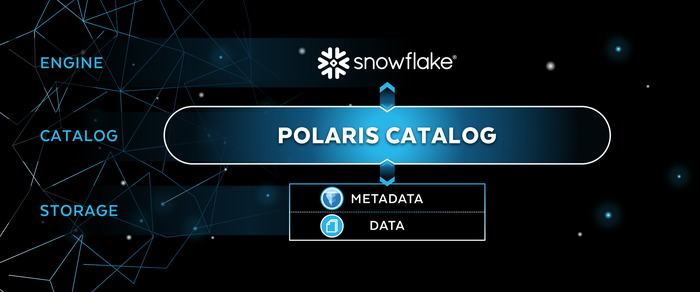Snowflake Data Cloud Summit Kicks Off with AI, Polaris Catalog LaunchSnowflake Data Cloud Summit Kicks Off with AI, Polaris Catalog Launch
Meantime, the company said it's not responsible for last month's well-publicized breach impacting Ticketmaster, a large client.

SNOWFLAKE DATA CLOUD SUMMIT — Data cloud giant Snowflake on Monday kicked off its user conference in San Francisco with new products and AI conversations as it reacts to a breach that impacted some of its high-profile clients.
Snowflake Data Cloud Summit attendees will hear a lot this week about how the company is integrating artificial intelligence into its offerings.

Snowflake's Sridhar Ramaswamy
"We're very full of anticipation with what AI can do in multiple areas," said Snowflake CEO Sridhar Ramaswamy, in a media briefing ahead of the Summit. "We've embraced AI in a pretty big way, but in a very practical way. We want AI to become easy to use. We want it to become trusted, because that's not where consumer AI is [right now]."
Ramaswamy took the reins as chief executive at the cloud data storage and analytics colossus earlier this year when Frank Slootman retired after five years leading the company.
It's been full-speed ahead for Snowflake ever since its founding in 2012. In its first funding round in 2014, the company raised $26 million. It nearly doubled that every year until 2018, when it claimed a valuation of $3.5 billion. Its market cap is now $45.6 billion by most estimates.
It got there in part thanks to a flurry of acquisitions after Slootman, the former boss at ServiceNow, joined as CEO in 2019. Those include Streamlit, the open-source framework to build and share machine learning and data web apps, for $800 million; Neeva, a search engine that prioritized protecting users' privacy, for $185 million; and Ponder, which extended Snowflake's capabilities for enterprises around Python, the programming language.
There likely are more acquisitions to come soon. Snowflake is linked to Reka AI, which builds custom AI models for enterprises, in a deal that could be worth $1 billion.
Ahead of the company's Partner Summit on Wednesday, part of Data Cloud Summit, Ramaswamy highlighted many of Snowflake's partnerships not only with enterprise channel partners, but with the big public cloud providers, and of course, a certain AI company.
"All companies exist in an ecosystem of partnerships that they work with," the CEO said. "We have amazing partnerships with they hyperscalers. But if there's one company that's at the center of all that is happening in AI and in computation, it is Nvidia."
Nvidia CEO Jensen Huang will take the stage at Snowflake Data Cloud Summit to discuss the work the two companies are doing together and its impact on customers.
Snowflake Polaris Catalog
Snowflake at Data Cloud Summit on Monday introduced Polaris Catalog for Apache Iceberg, the open-source option for large analytic tables. Polaris will give the open-source Iceberg community "new levels of choice, flexibility and control" over their data. It will have full enterprise security and Apache Iceberg interoperability with hyperscalers AWS, Microsoft Azure, Google Cloud and more.

“Organizations want open storage and interoperable query engines without lock-in. Now, with the support of industry leaders, we are further simplifying how any organization can easily access their data with increased flexibility and control,” said Christian Kleinerman, executive vice president of product, Snowflake.

Snowflake's Christian Kleinerman
Snowflake and the Ticketmaster Breach
Channel Futures reported last week on the data breach that impacted the personal data of 560 million Ticketmaster users. Malicious hackers were able to get names, phone numbers, email addresses and order information, but not credit card information.
Researchers at Hudson Rock, the cybercrime intelligence solutions company, claimed to interact directly with the threat actors responsible for the breach. The hackers told the company they got the Ticketmaster data and data from Santander Bank − both Snowflake clients − by using stolen credentials to log into a Snowflake employee's ServiceNow account. That led to the two high-profile intrusions and potentially many more involving the cloud data giant's customers.
The discovery has attracted the attention of security watchdogs.
“The incident playing out at Snowflake is due to the same issue we're seeing across the market: Companies are not incorporating the security of their SaaS applications into their security architectures," said Brian Soby, CTO and co-founder at SaaS security company AppOmni. “In this case, an attacker simply bought stolen credentials and used them to log in directly to Snowflake's ServiceNow instance, as it was misconfigured to allow single sign-on (SSO) to be optional instead of mandatory. Access into that one critical SaaS application then allowed them to move laterally into Snowflake's customer environments."
But Not So Fast ...
Not specifically mentioning these breaches, Snowflake chief information security officer Brad Jones denied responsibility and refuted "errant claims."
"We have no evidence suggesting this activity was caused by any vulnerability, misconfiguration or breach of Snowflake’s product," Jones wrote in a blog. "Snowflake does not believe that it was the source of any of the leaked customer credentials. "Throughout the course of our ongoing investigation, we have promptly informed the limited number of customers who we believe may have been impacted."
Jones acknowledged someone accessed a former employee's demo account, but it was not connected to Snowflake's production or corporate systems. Since it was a demo account, it was not protected by Okta, nor did it require multifactor authentication as Snowflake's corporate and production systems do.
Channel Futures is in San Francisco all week for Snowflake Data Cloud Summit, including for the company's Partner Summit on Wednesday.
Read more about:
MSPsAbout the Author
You May Also Like


